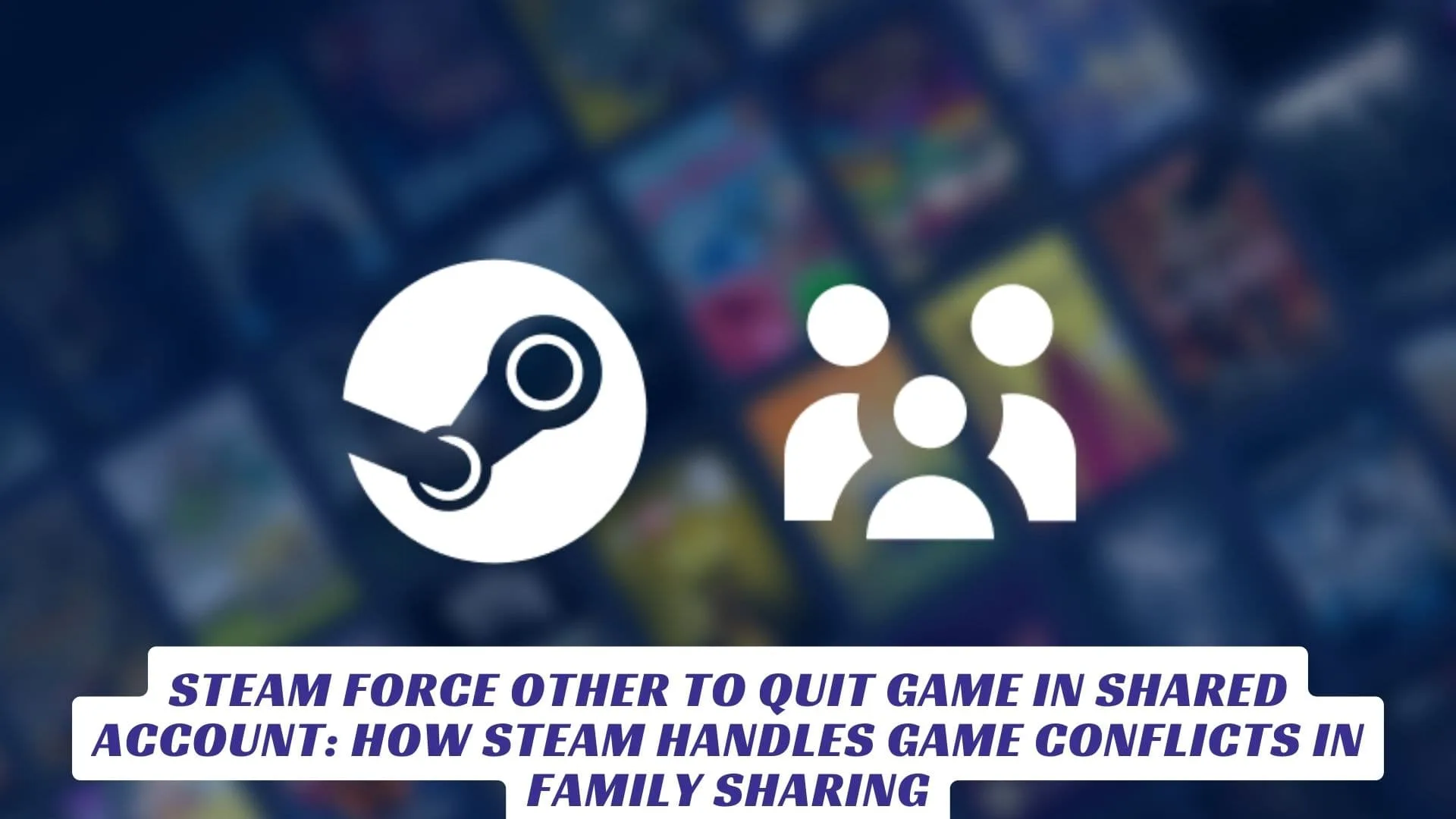Contents
If you’ve ever wondered why steam force others to quit game in shared account,” you’re not alone. Steam’s Family Sharing and the new Steam Families feature have revolutionized how we share games with friends and family, but they also come with unique mechanics to manage who can play what, and when. When multiple users want to access the same game in a shared account, Steam has built-in systems to handle conflicts-sometimes forcing one player to quit so another can take over. Understanding how Steam prioritizes access, what messages users receive, and how to manage these situations is crucial for anyone sharing their library. In this comprehensive guide, we’ll explore how Steam forces others to quit games in shared accounts, who gets priority, and what you can do to avoid unwanted interruptions.
How Steam Family Sharing and Steam Families Work?
Steam’s Family Sharing (and the newer Steam Families system) allow you to share your game library with up to five other accounts, letting everyone play games from a pooled collection. Each member keeps their own saves and achievements, and with the latest updates, multiple people can play different games from the shared library at the same time. However, when it comes to playing the same game, things get interesting.
What Happens When Two People Try to Play the Same Game?
- Single Copy, Single Player: Only one person can play a specific copy of a game at a time. If two people want to play the same game and there’s only one copy in the family library, only one can play at any given moment.
- Owner Priority: If the owner of the game tries to launch it while someone else is playing, Steam will force the other user to quit. The non-owner receives a message giving them a few minutes (usually five) to either purchase the game or quit playing.
- Multiple Copies: If there are multiple copies of a game in the family library, then as many people as there are copies can play at once.
What Does the Forced Quit Look Like?
When you try to play a shared game that’s already being played, Steam will display a warning to the current player. This message typically says that the game is being requested by another user (often the owner) and gives the current player a short window to save progress and exit. If the player doesn’t quit in time, Steam will automatically close the game.
“If the playes a game then I get ejected… whoever starts a game will kick off any other person already playing. The exception is for the account owner, who takes priority over everyone else.”
Steam Families vs. Old Family Sharing: What’s Changed?
- Old Family Sharing: Only one person could access the entire shared library at a time-even if you wanted to play different games.
- Steam Families: Now, multiple people can play different games from the shared pool simultaneously. However, if two people want to play the same game, only as many as there are copies can play at once.
Can You Force Someone to Quit Remotely?
- As the Owner: Yes, if you launch a game you own that someone else is playing via sharing, Steam will force them to quit after a warning period.
- As a Non-Owner: You cannot force another user to quit unless you are the owner of the game or the only one with a license for it.
- Managing Access: If someone repeatedly blocks you, you can remove them from your Steam Family or revoke their access through the Family Management settings.
- Communication is Key: Let family members know when you want to play a certain game to avoid abrupt interruptions.
- Purchase Additional Copies: For popular games, consider buying extra licenses so more people can play at once.
- Monitor Usage: Use Steam’s Family Management tools to see who’s playing what and manage permissions as needed.
- Remove Problematic Users: If someone abuses access, you can remove them from your family group or revoke their sharing privileges.
